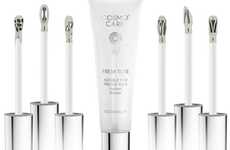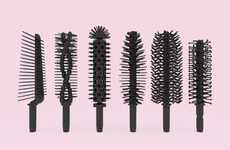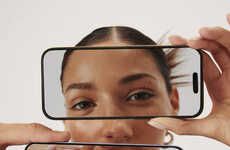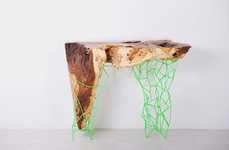L’Oreal is Now Manufacturing 3D-Printed Skin for Testing Its Cosmetics
Katherine Pendrill — June 2, 2015 — Tech
L’Oreal has begun manufacturing models with 3D-printed skin for testing its cosmetics and beauty products. The 3D models are an ideal way for the company to more accurately test its products because of the ability to observe product interactions on different skin phenotypes.
The French company is currently producing its patented 3D-printed skin called 'Episkin.' Episkin is made from the incubated tissue samples donated by surgery patients, which are then matured in a collagen culture. The epidermis samples are used by L’Oreal to determine the exact way in which its products will interact with human skin.
The revolutionary technology is particularly useful for sunscreen and anti-aging products, as the company can determine exactly how to tweak each serum to better adapt to different skin types. While the technology is still very much in its infancy, L’Oreal is leading the way in experimental forms of 3D printing.
The French company is currently producing its patented 3D-printed skin called 'Episkin.' Episkin is made from the incubated tissue samples donated by surgery patients, which are then matured in a collagen culture. The epidermis samples are used by L’Oreal to determine the exact way in which its products will interact with human skin.
The revolutionary technology is particularly useful for sunscreen and anti-aging products, as the company can determine exactly how to tweak each serum to better adapt to different skin types. While the technology is still very much in its infancy, L’Oreal is leading the way in experimental forms of 3D printing.
Trend Themes
1. 3D Printing in Cosmetics Testing - The use of 3D-printed skin models for testing cosmetics and beauty products presents a disruptive innovation opportunity for more accurate product interaction observations.
2. Personalized Skincare Through 3D Printing - Utilizing 3D-printed skin samples can offer disruptive innovation opportunities in developing personalized skincare products that adapt to different skin phenotypes.
3. Advancements in 3D Printing for Sunscreen and Anti-aging Products - The advancement of 3D-printed skin technology provides disruptive innovation opportunities to precisely tailor sunscreen and anti-aging products to effectively cater to diverse skin types.
Industry Implications
1. Cosmetics - The cosmetics industry can leverage 3D-printed skin models for more accurate testing and development of products that meet various skin phenotypes.
2. Skincare - The skincare industry can explore the use of 3D-printed skin samples to create personalized skincare solutions specifically designed for different skin types.
3. Biotechnology - The biotechnology industry can capitalize on the advancements in 3D-printed skin technology to enhance research and development for skincare and cosmetic applications.
4.6
Score
Popularity
Activity
Freshness






















